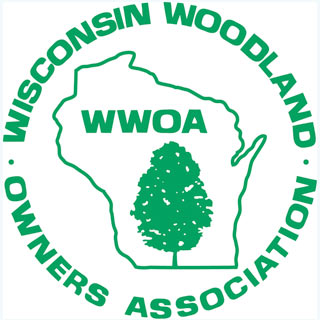Providing Conservation Practices to Improve Soil Health and Protect Natural Resources
Madison, Wis. – January 17, 2017 − Farmers will want to plan ahead and sign up early for USDA conservation funding. Maggie Rhodes, USDA−Natural Resources Conservation Service (NRCS) Acting State Conservationist in Wisconsin, announced farmers interested in the Environmental Quality Incentives Program (EQIP) need to apply by March 3, 2017, for funding in 2017. Applications are being taken at all USDA Service Centers in Wisconsin.
EQIP is the primary program available to farmers for farm and woodland conservation work, offering payments for over 110 basic conservation practices. Last year, Wisconsin received about $21 million in funds for EQIP practices.
“By getting applications in early, we have time for staff to visit individual farms to help plan all practices needed and offer advice,” said Rhodes. “It’s easier to do an accurate plan before the snow flies, when you can better see the landscape.”
All eligible applications received by March 3, 2017, will be evaluated and ranked for funding in 2017. Farmers may contact their local USDA Service Center to get started on producer eligibility and planning. Rhodes reminds farmers who are interested in practices that may require permits, such as manure storage or streambank restoration, to begin planning and seeking permits as soon as possible. Applicants with shovel-ready projects (designs completed and permits obtained) will receive higher priority.
Signup by March 3, 2017 for Several Special Initiatives Focusing on Conservation Efforts
Special sign-up opportunities are also now open for Soil Health, On-Farm Energy, Organic, and Seasonal High Tunnel conservation practices, as well as a number of landscape based initiatives. All offer technical and financial assistance through EQIP.
Soil Health: NRCS is working with producers to improve soil health through sound principles and systems that include no-till, cover crop, diversifying the crop rotation, and managing nutrients and pesticide applications. Improving soil health of the soil allows for improved soil organic matter, increased water infiltration, as well as better profits and crop yields.
On-Farm Energy: NRCS and producers develop Agricultural Energy Management Plans (AgEMP) or farm energy audits that assess energy consumption on an operation. Audit data is used to develop energy conservation recommendations.
Organic: NRCS helps certified organic growers and producers, working to achieve organic certification, install conservation practices to address resource concerns on organic operations.
Seasonal High Tunnel (Hoop House): NRCS helps producers plan and implement high tunnels – steel-framed, polyethylene-covered structures that extend growing seasons in an environmentally safe manner. High tunnel benefits include better plant and soil quality, fewer nutrients and pesticides in the environment, and better air quality due to fewer vehicles being needed to transport crops. Supporting conservation practices such as grassed waterways, and diversions are available to address resource concerns on operations with Seasonal High Tunnel structures.
Honey Bee: The upper Midwest is the resting ground for over 65 percent of commercially managed honey bees in the country. The NRCS is helping farmers and landowners implement conservation practices that will provide safe and diverse food sources for honey bees. Pasture management, wildlife habitat, and appropriate cover crops are used as tools to improve the health of our honey bees, which support more than $15 billion worth of agricultural production.
Mississippi River Basin Healthy Watershed Initiative: Through this Initiative, NRCS and its partners will help producers in selected watersheds in the Mississippi River Basin voluntarily implement conservation practices that avoid, control, and trap nutrient runoff; improve wildlife habitat; and maintain agricultural productivity. Designated subwatersheds within the Kickapoo River and Rush River basins are eligible.
National Water Quality Initiative: NWQI is designed to help individual agricultural producers take actions to reduce the runoff of sediment, nutrients, and pathogens into waterways where water quality is a critical concern. The goal is to implement conservation practices in focused watersheds in a concentrated area so that agriculture no longer contributes to the impairment of water bodies within these priority watersheds. Eligible watersheds include Big Green Lake in Green Lake County, Pigeon Lake-Pigeon River in Waupaca County, Spring Creek in Green County, and Wilson Creek in Dunn and St. Croix County.
Great Lakes Restoration Initiative: Through GLRI, NRCS offers financial assistance to agricultural producers for implementing practices that improve water quality in selected watersheds. Eligible watersheds in Wisconsin include the Lower Fox River, Manitowoc-Sheboygan, and the Milwaukee River.
Regional Conservation Partnership Program: The Regional Conservation Partnership Program (RCPP) promotes coordination between NRCS and its partners to deliver conservation assistance to producers and landowners. NRCS provides assistance to producers through partnership agreements and through program contracts or easement agreements. Current active projects for water quality improvement are located within the Oconomowoc River watershed, the Baraboo River watershed, the Milwaukee River watershed, and the Yahara River watershed. Projects to improve fish and wildlife habitat include monarch habitat statewide, stream and riparian habitat in the Driftless Area, as well as a project to improve young forest habitat for Golden-winged warblers in 20 northern Wisconsin counties.
Landowners interested in applying for EQIP funding should contact their local NRCS office at the USDA Service Center in their county. For more information, visit www.wi.nrcs.usda.gov.
